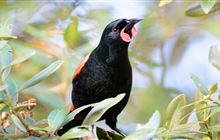Predator Free Dunedin MOU signed
Archived content: This media release was accurate on the date of publication.
Introduction
Dunedin has accelerated its commitment to the Government’s Predator Free 2050.Date: 16 March 2017 Source: Office of the Minister of Conservation
Conservation Minister Maggie Barry says Dunedin has accelerated its commitment to the Government’s Predator Free 2050 vision with 19 organisations signing a Memorandum of Understanding (MOU) today.
Prime Minister Bill English and Ms Barry joined signatories to the MOU at the Orokonui Sanctuary today to celebrate the Predator Free Dunedin initiative.
“Predator Free Dunedin is exactly the sort of collaboration that is essential for New Zealand to be Predator Free by 2050. It will create a haven for wildlife in the wider Dunedin area and brings predator control into the city centre,” Ms Barry says.
“Momentum is growing for the Government’s Predator Free 2050 goal to rid New Zealand of rats, stoats and possums and I have no doubt Predator Free Dunedin will provide a strong model for other projects still to come.”
“Predator Free Dunedin is based on the concept of a city as a ‘living restoration laboratory’, linking research and education with action and connecting and supporting communities to restore the health of our natural environment.
“It links up a number of projects around Dunedin where volunteers are actively involved in predator management. For example it connects the Pest Free Peninsula Project, which has just trapped its 11-thousandth possum, with other trapping projects.”
“Predator Free Dunedin takes the outstanding and innovative work already being done to the next level, as all parties work together to develop a city-wide management Plan that aligns with the Government’s Predator Free 2050 goal.”
The newly set up Predator Free 2050 Ltd, will receive a minimum $6 million of Crown funds annually and will leverage these funds to attract additional investment.
“On average an extra $10m or more will be invested annually into regionally significant predator control and eradication projects and around $3 million will be invested each year into break-through research on eradicating predators,” Ms Barry says.
This new investment, when added to the existing $70 to $100 million spent annually on predator control, will result in more than $3 billion being invested in predator control and eradication by 2050.
Contact
For media enquiries contact:
Email: media@doc.govt.nz

